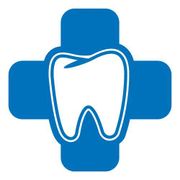How to Enjoy Cookies & Care for Your Teeth at the Same Time

Consuming too many sugary treats is a sure way to increase your risk of cavities, so it’s best to limit your sugar intake as much as possible. However, if you’re keen on celebrating National Cookie Day this December 4, you might wonder if there’s a way to enjoy these classic baked goods while keeping your smile safe. To help you enjoy this special day—and keep your dentist happy—here are a few things to know about cookies and your oral health.
What Cookies Are the Worst for Your Teeth?
Pure sugar cookies are some of the worst options for oral health. When the sugars in these treats stick to your teeth, they provide a fuel source for oral bacteria. As bacteria digest these sugars, they produce an acid that can wear away at enamel and cause cavities.
Given the danger of sugar, it’s best to avoid cookies that load up on other sweets—such as chocolates, frosting, and sprinkles. It’s also wise to steer clear of cookies that contain hard, sticky ingredients, including peppermint and toffee. These tough foods can place extra pressure on your teeth and cause them to crack—a problem that requires professional treatment from a skilled cosmetic dentist.
How Can I Make Cookies That Support Oral Health?
 When baking cookies, look to limit the amount of sugar you use. Instead of using sugar, consider stevia or xylitol—sugar-free sweeteners that deliver tasty results. Beyond sugar, it’s smart to use ingredients that can improve oral health. For example, oatmeal and granola contain fiber—a nutrient that boosts saliva production and makes it easier for your mouth to naturally clean your teeth.
When baking cookies, look to limit the amount of sugar you use. Instead of using sugar, consider stevia or xylitol—sugar-free sweeteners that deliver tasty results. Beyond sugar, it’s smart to use ingredients that can improve oral health. For example, oatmeal and granola contain fiber—a nutrient that boosts saliva production and makes it easier for your mouth to naturally clean your teeth.
Chemicals found in raisins have also been shown to fight oral bacteria and reduce the risk of gum disease and cavities. Or, if you’re craving a crunch, topping your cookies with almonds or peanuts can give your teeth a healthy dose of calcium—a mineral that helps strengthen teeth.
How Do I Keep My Teeth Clean After Eating Cookies?
No matter how healthy your cookies are, it’s still likely that the snack will expose your teeth to cavity-causing agents. Fortunately, you can practice proper teeth cleaning by brushing and flossing about an hour after eating your treats. If you brush sooner, you run the risk of stimulating acids in the mouth that can cause enamel wear.
While following these tips will help protect your smile, it’s still important to visit a trusted dentist every six months for a routine exam and teeth cleaning. If you live in the Hamilton, OH area, Charles P. Debbane, DDS and Laura M. Arnold, DDS are two experienced dentists that can care for every member of your household. Whether providing preventive care or cavity fillings, these caring professionals will take time to deliver treatment in a comfortable fashion within a relaxing atmosphere. To learn more about the ways these dentists can help you smile with confidence, visit their clinic online. For appointments, call (513) 887-6654.
About the Business
(21 reviews)
Have a question? Ask the experts!
Send your question

